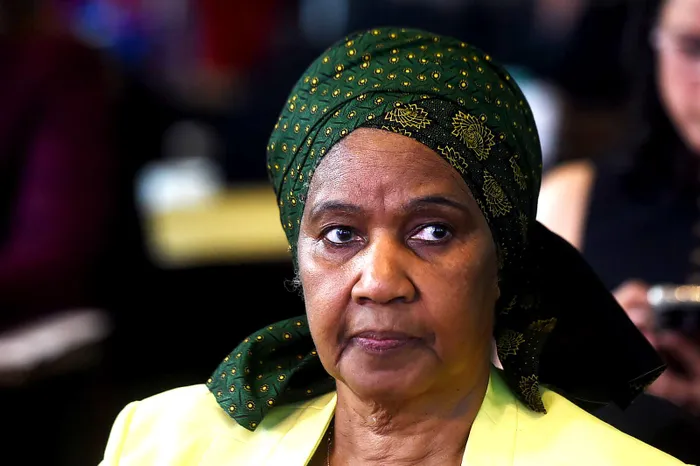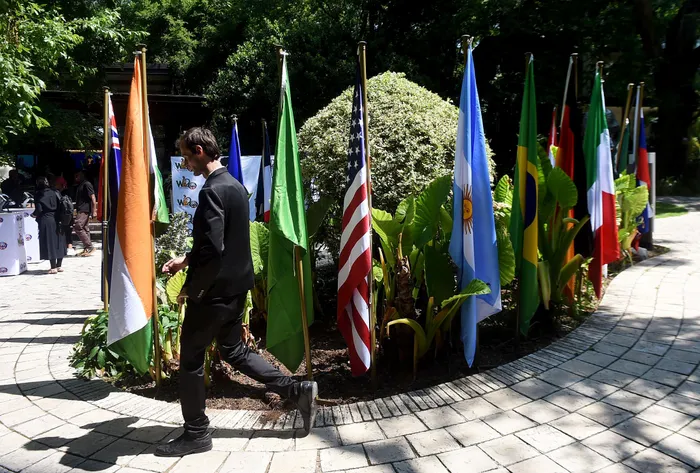Mlambo-Ngcuka: 'Spirit of Ubuntu' needed to reshape colonial democratic frameworks

Former Deputy President Phumzile Mlambo-Ngcuka has called on women leaders to help reshape colonial democratic frameworks that may not be suited for emerging nations.
Image: Itumeleng English/Independent Newspapers
Former deputy president, Phumzile Mlambo-Ngcuka, has called on women leaders to help infuse the spirit of Ubuntu to help reshape a new way of practising democracy, which she said is in a state of crisis across the board.
The former United Nations (UN) leader urged global leaders to rethink democratic frameworks that may not be suited to the world's current challenges, saying these democratic principles adopted by many former colonised countries directly mirror those of their colonisers, which has led to a state of crisis in governance and social equality.
Mlambo-Ngcuka, who is also the convenor of the G20 Social Summit 2025, delivered her message of support during the second day of the Women20 South Africa (W20 SA) Summit, currently underway at the Vivari Hotel and Spa in Krugersdorp on Monday.
"Our countries are in a crisis in general, and we are the ones that we have been waiting for. If we do not step forward and play our role, we are leaving a gap for what we do not want to continue. If democracy is a crisis, we have to fix that. But we don't want to recreate what we do not want. For those of us who were colonised, we implemented what the colonisers implemented in their countries. It is not clear to me that it is suited to us and works for us. We must reinvent what works for us in the context that we are in. Every time I think about this, I think we need the spirit of Ubuntu. Leadership should be about what you give, and never about what you get," she said.

Various delegates from the G20 country members' state are meeting in Krugersdorp for the Women20 Summit.
Image: Itumeleng English/Independent Newspapers
She also urged the G20 Secretariat, made up of women leaders from various G20 member states, to never be discouraged should any of their recommendations not be included in the G20 universal agenda.
"Please implement even those resolutions that will not be taken on board. There is no time now for all talk and no action. This is the time for action on any and everything we do. I also want to say, it is important for us to show up wherever issues that affect us are deliberated," she said.
The W20 SA Summit, themed, Women in Solidarity towards a Just Future, aims to advance gender equality and women's economic empowerment by bringing together global leaders, researchers, policymakers, and civil society representatives.
As an official engagement group of the G20, Women20 (W20) promotes gender equality and women's economic empowerment, and this summit is set to provide a platform for women from diverse backgrounds to advocate for policies and programmes that promote women's economic empowerment and social justice.
These are guided by the principles of unity, multilateralism, mutual respect, and inclusivity. The summit aims to guarantee the inclusion of W20 recommendations in the Leaders' Declaration, honour ten years of W20, and promote people-centric advocacy.
This is the first G20 summit on African soil, and it aims to highlight African issues and those of the Global South. One of the biggest issues affecting women in Africa and other parts of the globe is the gender pay gap, which was a hot topic on Monday.
According to recent data from the World Economic Forum, in 2025, the gender pay gap in South Africa will show that women earn 23% to 35% less than men for the same work, which translates to women earning roughly R72.44 for every R100 earned by men.
Ida Tsitsi Chimedza from the International Labour Organisation (ILO) said inequalities in the G20 countries have resulted in women spending twice as much as their male counterparts in unpaid work, further compounding the gender pay gap.
"Gender pay gap is a key indicator of inequality and gender inequality. For every dollar earned by a man, a woman earns 70c. It will take 125 years to close the gap. These barriers are deeply rooted in social norms and policies that fail to account for women's issues. The cumulative effects of this adversely affect women's outcomes in the economy. If you look at G20 countries, women spend twice as much in unpaid work because gender is a cross-cutting issue, and I am happy that G20 has prioritised this," she said.
siyabonga.sithole@inl.co.za